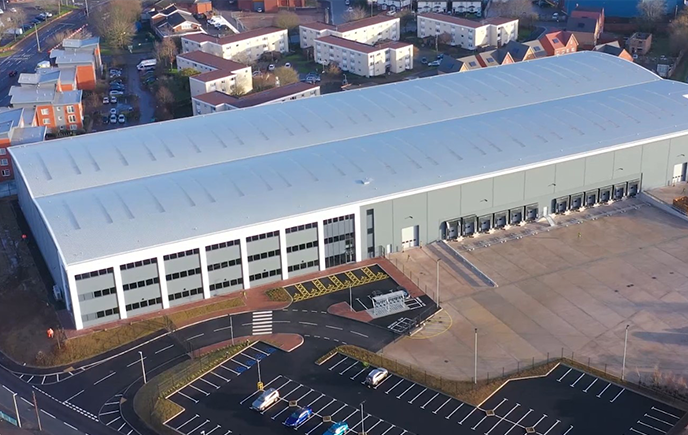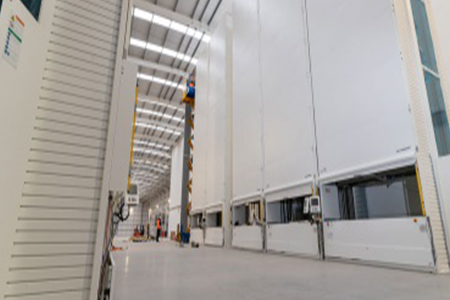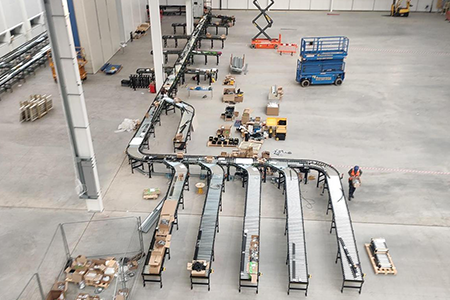In this article
The future of the industrial supply chain
Since the first global impacts of the Covid pandemic began to make themselves felt, in 2020, the issue of supply chain disruption has become one of the most widely discussed topics in boardrooms around the world.

Although the impact of Covid has clearly been dramatic and far-reaching, it has in fact been just the latest in a growing list of supply chain challenges facing industrial companies. In recent years, we’ve witnessed trade disputes and tariff wars between major trading nations, political instability in regions that supply vital raw materials and the prolonged uncertainties of Brexit, combined with a rise in populism and nationalism in countries around the world that is driving movements to localise production and employment.
The pre-existing dynamics of global trade, however, depend largely on the use of extended supply chains, which exploit the manufacturing resources and labour available in low-cost regions. Although this model was already showing signs of weakness in the years leading up to the outbreak of the pandemic, Covid has exposed its fragility still further, in many cases to breaking point.
Clearly, a new approach is required. One that accommodates the business, political, environmental and cultural changes that society has undergone. The challenge for many companies will be to find methods of building resilient and agile supply chains that improve business competitiveness, while delivering the security and certainty that underpin long-term business growth.
A new approach to supply chain logistics
Our position at the heart of many of today’s global supply chains gives us a unique perspective on the issues facing our customers around the UK and Ireland. From our longstanding experience partnering with companies that range from major automotive suppliers with high volume continuous production operations, to specialised providers of low volume engineering services, we have gained considerable knowledge and insight into the challenges of balancing short-term supply disruption with strategic long-term growth planning.
Our solution has been to re-engineer our entire UK operation to meet the changing needs of our customers, both today and as they evolve in the coming years. Our intention is to build a dedicated, customer-centric operation that is truly resilient, robust and agile; an operation that provides customers with products, services and the security of supply that they need to run their business, supported by an unrivalled level of technical, applications and commercial know-how that will give each customer a vital competitive edge.
The Oldbury Fulfilment Centre of Expertise
At the heart of our new operation will be a custom-built headquarters and Fulfilment Centre of Expertise in Oldbury, in the West Midlands. This is a multi-million pound investment – one of the largest that the ERIKS Group has ever made in its 80-year history – and comes with a clear set of goals, to:
- Stock the exact products customers need
- Deliver the right products every time
- Supply products to customers when they need them
- Give customers end-to-end visibility and connectivity
- Support customers’ future growth
A key factor in the development of the new Centre is to ensure that it supports the future needs of our customers and, by association, those of our business. It’s been designed with significant capability for growth, with sophisticated and scalable I4.0-ready technology throughout.


This includes integrated ERP and warehouse management systems that control advanced automated vertical picking systems, rapid transit conveyors and integrated scanning, vision and weighing equipment. In essence, we’ll have end-to-end visibility of every part and process, combined with precise forecasting and business modelling.
Over time these new systems, supported by insight from our customer-facing technical and commercial teams around the UK and Ireland, will provide us with a rich pattern of data from which we will be able to fine-tune existing operations while creating a dynamic digital platform on which we can develop new customer service options for the future.
The new Oldbury Fulfilment Centre will form the heart of our new operational model, supporting a specialised network of logistics and services hubs located at key locations around the UK. These will be based primarily at our existing regional locations but will also include new sites as the needs of our customers evolve. They will provide dedicated distribution and engineering services to meet the needs of each local market, with services ranging from parts kitting, coding and customisation, to motor and pump repair and refurbishment.
We’ve already started the process of investment in a number of regional hubs. For example, our site in Southampton is being relocated to a custom-built unit, with significant investment in dedicated stockholding and specialised engineering services to support the needs of our customers in the water, waste treatment and aerospace sectors. Similar investments are being made at our regional hubs in Chesterfield and Cardiff.
Our CEO for the UK and Ireland, David Gillies, explains, “This is an exciting development for our customers, and a huge endorsement by our parent company in both our team and the ongoing success of our business. We recently celebrated our 80th year as a major industrial services provider and are excited to be embarking on the next phase of our development. The new Fulfilment Centre of Expertise will become our primary fulfilment hub and headquarters in the UK & Ireland, enabling us to set the standard in quality, accuracy and value of service provided to all our customers.”
#ERIKS #LetsMakeIndustryWorkBetter #DigitalSupplyChain #DigitalWarehouse #FCE #FilfulmentCentre #Expertise #IndustrialSupplyChain

